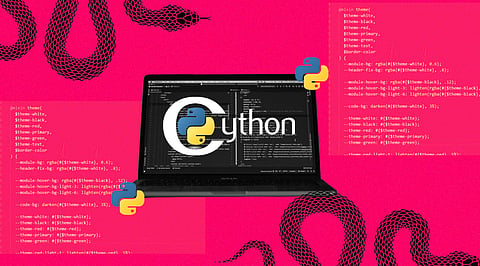

Python as a programming language is the most common language that helps in web development, web scraping, data science, and much more. Last week, the first Python language summit since 2019 took place in Salt Lake City. The Python Language Summit is an event for the developers of Python implementations to share information, discuss our shared problems, and hopefully solve them.
Summit received numerous topic proposals from Python core developers as well as from members of the wider Python community, all are very interesting and important. The next version of the standard Python interpreter, CPython, is expected in October. It will include significant performance improvements and support for running inside the browser. The advantage of using CPython is the availability of C Run-time as well as easy integration with C/C++.
At the event, the language's development team announced various changes for the forthcoming version of the language, as well as its near future. The summit issues might be related to the language itself, the standard library, the development process, the status of Python 3.8 or plans for 3.9, the documentation, packaging, the website, et cetera. The Summit focuses on discussion more than on presentations.
CPython is the reference implementation of the Python programming language. It is the implementation you download from Python.org. People call it CPython to distinguish it from other, later, Python implementations, and to distinguish the implementation of the language engine from the Python programming language itself. At the summit, both the core developers of CPython and alternative Pythons were held on the first day of PyCon. The summit features short presentations from Python developers and community members, followed by longer discussions.
There were other forks to the original implementation that enabled Python to lever-edge Java, .NET Runtime as well as compilers, but the core implementation of the language is the CPython interpreter. This has some well-known limitations, including the Global Interpreter Lock (GIL), which is a mutex that allows only one thread at a time to have control of the Python interpreter and prevents the language from taking full advantage of multicore processors. The GIL allows only one thread to execute at a time even in a multi-threaded architecture with more than one CPU core, the GIL has gained a reputation as an "infamous" feature of Python.
Apparently, Meta-owned uses Python very heavily and runs on an internal version called Cinder, it is Meta's performance-oriented version of CPython 3.8. It has been in use as the production Python behind the Instagram server for years. But this is specialized for the company's needs and isn't for general consumption. The new effort should be more widely applicable.
The Microsoft HotPy project aims to bring the optimizations developed and assessed in the original HotPy project to CPython. With the addition of a JIT compiler speeds ups to up to a factor of 10 should be possible for pure Python code. So far, the beta of CPython 3.11 is on average about 25 percent faster in benchmarking. And the speedup project also has a roadmap for future changes. This guide is a well-defined roadmap for beginner and intermediate Python developers.
Join our WhatsApp Channel to get the latest news, exclusives and videos on WhatsApp
_____________
Disclaimer: Analytics Insight does not provide financial advice or guidance on cryptocurrencies and stocks. Also note that the cryptocurrencies mentioned/listed on the website could potentially be risky, i.e. designed to induce you to invest financial resources that may be lost forever and not be recoverable once investments are made. This article is provided for informational purposes and does not constitute investment advice. You are responsible for conducting your own research (DYOR) before making any investments. Read more about the financial risks involved here.
